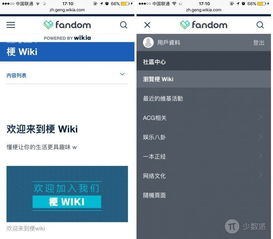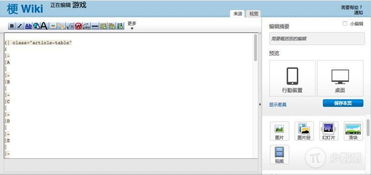
Have you ever wondered what Wiki is all about? Are you intrigued by the concept of collaborative writing and the power of collective knowledge? Well, you’ve come to the right place. In this article, I’ll delve into the intricacies of Wiki, exploring its origins, functionalities, and the impact it has on our digital world.
What is Wiki?

Wiki, derived from the Hawaiian word “wikiwiki,” which means “quick,” is a collaborative writing tool that allows multiple users to contribute, edit, and expand content. It is a web-based platform that supports the creation, modification, and organization of information in a user-friendly manner.
Origins of Wiki

The concept of Wiki was born in 1995 when Ward Cunningham, a software developer, created the first WikiWikiWeb. He was inspired by the Hawaiian word “wikiwiki,” which he saw on a bus in Honolulu. The goal was to create a platform that would enable quick and easy collaboration among developers.
How Wiki Works

Wiki operates on a simple principle: anyone can contribute to the content. Users can create new pages, edit existing ones, and link them together to form a coherent knowledge base. The editing process is transparent, and changes are recorded, allowing users to track the evolution of the content over time.
Wiki uses a markup language called MediaWiki, which is specifically designed for creating and editing Wiki pages. It provides a set of syntax rules that allow users to format text, create links, and include images and other media.
Benefits of Wiki
Wiki offers numerous benefits, making it a popular choice for various applications:
| Benefits | Description |
|---|---|
| Collaboration | Wiki enables multiple users to work together on a single document, fostering teamwork and knowledge sharing. |
| Accessibility | Wiki is accessible from anywhere in the world, allowing users to contribute and access content at their convenience. |
| Transparency | Changes made to Wiki pages are recorded, providing a transparent and auditable history of the content. |
| Flexibility | Wiki allows users to create and organize content in a way that suits their needs, making it adaptable to various projects and purposes. |
Applications of Wiki
Wiki is used in a wide range of applications, including:
-
Knowledge management: Organizations use Wiki to store and organize information, making it easily accessible to employees.
-
Project collaboration: Wiki facilitates teamwork by allowing project members to share and edit content in real-time.
-
Education: Teachers and students use Wiki to create collaborative learning environments, where they can share resources and discuss topics.
-
Community building: Wiki enables communities to come together and share knowledge, fostering a sense of belonging and collaboration.
Challenges of Wiki
While Wiki offers numerous benefits, it also comes with its own set of challenges:
-
Quality control: Without proper moderation, Wiki pages can become cluttered with irrelevant or inaccurate information.
-
Security concerns: Wiki platforms can be vulnerable to unauthorized access and vandalism.
-
Complexity: For some users, the learning curve of Wiki can be steep, requiring time and effort to master.
The Future of Wiki
As technology continues to evolve, Wiki is likely to adapt and grow. With advancements in artificial intelligence and machine learning, Wiki could become even more intelligent, providing personalized recommendations and improving the overall user experience.
Wiki has revolutionized the way we create, share, and organize information. Its collaborative nature and ease of use have made it a powerful tool for individuals, organizations, and communities worldwide. As we continue to embrace the digital age, Wiki will undoubtedly play a crucial role in shaping our future.






